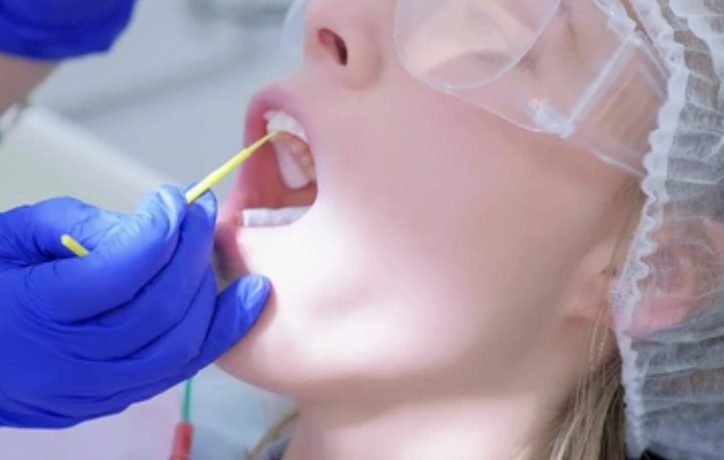Are you one of those people who are always on the lookout for ways to keep your teeth healthy and avoid cavities? The answer may lie in fluoride treatment. Fluoride is a mineral that is naturally present in water, soil, and certain foods. It has been found to be an effective tool in preventing tooth decay and cavities. In this blog post, we will cover everything there is to know about fluoride treatment – from what it is and how it works, to its benefits, effectiveness, and how it can be used for different age groups. So, whether you’re a parent concerned about your child’s dental health or an adult looking for ways to improve yours, read on to learn more about the power of fluoride and how it can help you maintain healthy teeth.
Understanding Fluoride Treatment
Maintaining healthy teeth is crucial for overall oral hygiene, and fluoride treatment can help prevent tooth decay. Fluoride can be ingested through drinking water or supplements and applied topically in the form of toothpaste or mouthwash. However, professional fluoride treatments at a dentist’s office provide a higher concentration of fluoride for better protection against cavities and tooth decay. Fluoride treatment is safe and effective when used in appropriate amounts, but it is important to talk to your dentist about the right amount of fluoride for you and your family. By understanding how fluoride treatment works, you can make informed decisions about your dental health and ensure that you are taking all necessary measures to prevent tooth decay.
What is Fluoride Treatment?
In simple terms, fluoride treatment involves the application of fluoride to the teeth to prevent tooth decay and strengthen enamel. This quick and painless procedure is performed by a dentist or hygienist during a routine dental visit and can take many forms, including gels, foams, varnishes, or rinses. Fluoride treatment is especially critical for children as it helps prevent cavities and promotes healthy oral hygiene habits. As with any dental procedure, it’s always best to consult with your dentist to determine if fluoride treatment is right for you or your child.
How Does Fluoride Prevent Tooth Decay?
Maintaining healthy teeth is essential for overall oral health, but the buildup of bacteria can lead to tooth decay. Fortunately, fluoride treatment can help prevent tooth decay by strengthening tooth enamel and making it more resistant to acid attacks from bacteria in the mouth. Fluoride can also restore minerals to areas of weakened enamel and reverse the early stages of tooth decay. Obtaining fluoride through fluoridated water, toothpaste, and professional treatments at the dentist’s office can significantly reduce the risk of cavities and improve overall oral health. Talk to your dentist today about how fluoride treatment can benefit you or your child’s dental health.
Benefits of Fluoride Treatment
Beginning with an interesting fact can be a great way to pique the reader’s interest and introduce the benefits of fluoride treatment. Did you know that the Centers for Disease Control and Prevention (CDC) has named community water fluoridation as one of the 10 great public health achievements of the 20th century? That’s because fluoride is a proven tool in preventing tooth decay and promoting good oral hygiene.
Strengthening Tooth Enamel
Maintaining strong tooth enamel is essential for preventing tooth decay. Fortunately, fluoride treatment can help strengthen and protect your teeth. By remineralizing weakened areas of the enamel, fluoride helps to rebuild its strength and resilience in the face of acid attacks from bacteria in the mouth. This makes it an effective way to prevent cavities and maintain overall oral health. Whether through fluoridated water, toothpaste, or professional treatments at the dentist’s office, incorporating fluoride into your oral care routine can go a long way toward keeping your teeth healthy and strong.
Reducing Tooth Decay
Reducing tooth decay is one of the most significant benefits of fluoride treatment. The mineral works by strengthening tooth enamel and making it more resistant to acid attacks that cause decay. Research has shown that communities with fluoridated water have lower rates of tooth decay, and regular use of fluoride toothpaste and mouthwash can provide additional protection against cavities. While fluoride products are effective in reducing tooth decay, it’s important to use them as directed and in moderation. With regular use of fluoride treatments, you can keep your teeth healthy and free from painful cavities.
Preventing Cavities
Maintaining good oral hygiene is crucial to prevent cavities and tooth decay. Fluoride treatment can be an effective way to prevent cavities by strengthening tooth enamel. It works by remineralizing areas of teeth that have been weakened by acid erosion, helping to reverse the early stages of tooth decay before it becomes a cavity. Additionally, research has shown that communities with fluoridated water have lower rates of tooth decay. Fluoride treatment is safe and can be found in toothpaste, mouthwash, and many public water systems. Consult with your dentist to determine the best fluoride treatment plan for you and your family.
Conclusion
In conclusion, fluoride treatment is an effective and safe way to prevent tooth decay and cavities. It works by strengthening tooth enamel and reducing the amount of acid produced by bacteria in your mouth. Fluoride treatment is beneficial for people of all ages, but it can be especially helpful for children whose teeth are still developing. It is important to note that while fluoride treatment is highly effective, it should not be considered a substitute for good oral hygiene practices such as brushing, flossing, and regular dental check-ups. Consult with us today at South Dayton Smiles!

 Meet Dr. Botti
Meet Dr. Botti
 Meet Dr. Scranton
Meet Dr. Scranton
 Our Team
Our Team
 Patient Forms
Patient Forms Online Bill Pay
Online Bill Pay Benefit Program
Benefit Program Your First Visit
Your First Visit